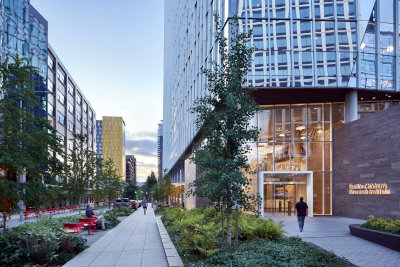P30 CFRTC – Pilot 26
Colonic inflammation and dysbiosis: Factors that induce colorectal cancer in cystic fibrosis
PI: William Grady, MD
Professor, Medicine, Gastroenterology
PI: Neelendu Dey, MD
Assocaite Professor, Medicine, Gastroenterology
Funding Period: 2022 – 2025
Abstract: People with cystic fibrosis (CF) have an increased risk for a variety of cancers, with some of the highest risk for gastrointestinal cancer, which has led the Cystic Fibrosis Foundation to designate CF as a hereditary cancer syndrome. The standardized incidence ratio (SIR) for CRC is >6. Colon adenomas, the precursor lesions from which CRCs arise, also occur at high rates and at a young age in CF patients with up to 50% of CF patients having adenomas by age forty and 25% developing advanced (high risk) adenomas.
There are a number of mechanisms that drive sporadic CRC formation including gene mutations, epigenetic alterations, immune microenvironment alterations, gut dysbiosis, etc. However, because of the lack of studies in adults with CF, which of these mechanisms in causing CRC in CF patients is largely unknown. In vitro studies of CFTR mutant or null CRC cells and studies of Cftr-/- mice show CFTR can function as a tumor suppressor gene by altering oncogenic signaling pathways, altering cell behavior, etc; however, the relevance of these studies to primary human CRC has not been shown.
In light of recent studies demonstrating intestinal inflammation and gut dysbiosis may promote sporadic CRC formation and the observation of intestinal inflammation and dysbiosis in most children with CF, we propose that they may be the dominant in vivo mechanisms that promote colon adenoma and CRC formation in people with CF. Of note, as gut dysbiosis
appears to be a cause of intestinal inflammation, the two processes are linked. However, there is a major knowledge gap about the histologic inflammation state and gut microbiome of the adult CF colon, which is critical for assessing the role of intestinal inflammation in adult CF GI disease, especially CRC.
Given the observation that intestinal inflammation, gut dysbiosis, and CRC are common in CF patients and the emerging understanding of intestinal inflammation and dysbiosis in CRC causation, we propose to carry out pilot studies to characterize these states in CF patients an

